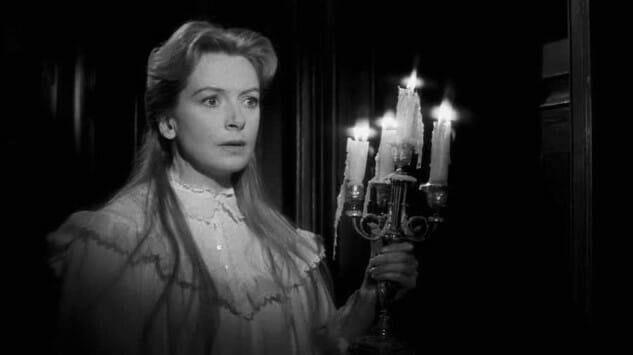The Best Horror Movie of 1961: The Innocents

This post is part of Paste’s Century of Terror project, a countdown of the 100 best horror films of the last 100 years, culminating on Halloween. You can see the full list in the master document, which will collect each year’s individual film entry as it is posted.
The Year
Almost any year would probably seem like a bit of a step down after the watershed that was 1960, and that’s pretty much the case for 1961, although it can lay claim to one of cinema’s best pure ghost stories in the form of The Innocents. After the clear #1 for this year, however, the rest of the field is considerably more workmanlike in comparison.
Roger Corman’s Poe cycle continues with the plush but grisly The Pit and the Pendulum, greatly expanding Edgar Allen Poe’s short story source material into a big-budget (for Corman, anyway) Gothic thriller starring a returning Vincent Price and Black Sunday’s Barbara Steele. The film’s drawn-out torture sequences (and the pendulum itself) would be informative on the next generation of Italian horror cinema in particular, where directors such as Mario Bava and Dario Argento would borrow some of its devices, plus quite a bit more blood. As for the Poe films by Corman, they’re all eminently watchable, although they tend to come off with an element of camp in modern viewing that likely wasn’t entirely intended. You might say that where Vincent Price leads, a macabre sense of humor tends to follow.
-

-

-

-

-

-

-

-

-

-

-

-

-

-

-

-

-

-

-

-

-

-

-

-

-

-

-

-

-

-

-

-

-

-

-

-

-

-

-

-








































